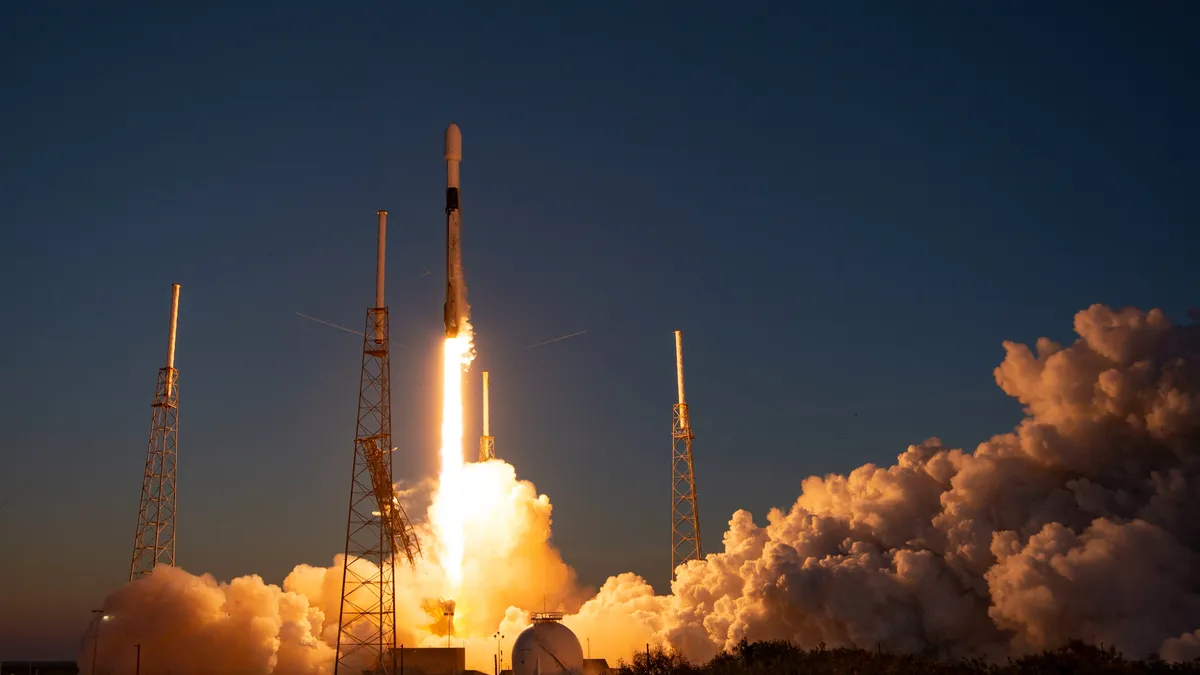
On May 30, SpaceX is set to launch an advanced GPS satellite on an unprecedented short notice, and you can catch the action live. A Falcon 9 rocket will lift off from the Cape Canaveral Space Force Station in Florida during a 15-minute launch window that opens at 1:23 p.m. EDT (1723 GMT). This mission will carry the GPS III SV-08 spacecraft into orbit for the U.S. Space Force.
SpaceX received the official launch order on March 7, allowing the team to complete all necessary preparations in less than three months. This achievement sets a new record for U.S. national security missions, which typically require 18 to 24 months of preparation, according to officials from the Space Force. Today's launch underscores the Space Force's ability to execute high-priority launches swiftly, showcasing its capacity to address urgent constellation needs as quickly as the readiness of space vehicles permits.
You can watch the launch live, as SpaceX will provide a webcast via X, starting approximately 15 minutes before liftoff. As indicated by its name, GPS III SV-08 will be the eighth satellite in the GPS III series to reach orbit, with "SV" standing for Space Vehicle. The Space Force intends to deploy a total of 10 of these advanced spacecraft, all manufactured by aerospace giant Lockheed Martin, with the final two set to launch within the next year.
The inaugural GPS III satellite launched in 2018, and with the exception of one, all have been deployed aboard Falcon 9 rockets. The only outlier is the GPS III SV-02, which ascended on a United Launch Alliance (ULA) Delta IV rocket in August 2019. Initially, ULA was scheduled to launch both GPS III SV-07 and GPS III SV-08 using its new Vulcan Centaur rocket, but the Space Force later transitioned these missions to the Falcon 9. The Vulcan Centaur will still be the launch vehicle for GPS III-09 and GPS III-10.
GPS III SV-07 successfully launched last December after just five months of processing, marking the current record for a national security mission. However, the Space Force believed that with the combined efforts of SpaceX and Lockheed Martin, they could surpass this record, setting the stage for today’s liftoff.
Col. Andrew Menschner, the Mission Delta 31 commander at Peterson Space Force Base in Colorado, expressed optimism during a press call on May 28 regarding potential future launch timelines. “I think we can go faster than the three months we’re going to prove out on this particular launch, and I think we’ll continue to refine our processes and move forward,” he stated.
The GPS III satellites are significantly more advanced than their predecessors, offering precision, navigation, and timing information that is up to three times more accurate. Additionally, they boast nearly eight times greater resistance to jamming, a crucial feature in today’s increasingly competitive and contested space environment. Col. Menschner noted, “Our adversaries that intentionally want to do us harm have been studying the way we do business over the last 20 years.” This highlights the importance of robust GPS capabilities for the U.S. Joint Force.
GPS III SV-08 is named in honor of pioneering NASA mathematician Katherine Johnson, one of the hidden figures instrumental in launching the United States’ human spaceflight program during the early days of the space race. Other satellites in the GPS III series pay tribute to NASA luminaries as well; GPS III SV-05 and GPS III SV-07 were named after Neil Armstrong and Sally Ride, respectively.
Currently, the GPS constellation comprises 31 active satellites, with an additional seven serving as on-orbit spares. Today's launch represents a significant advancement in satellite technology and operational capability, reinforcing the U.S. commitment to maintaining a robust presence in space.